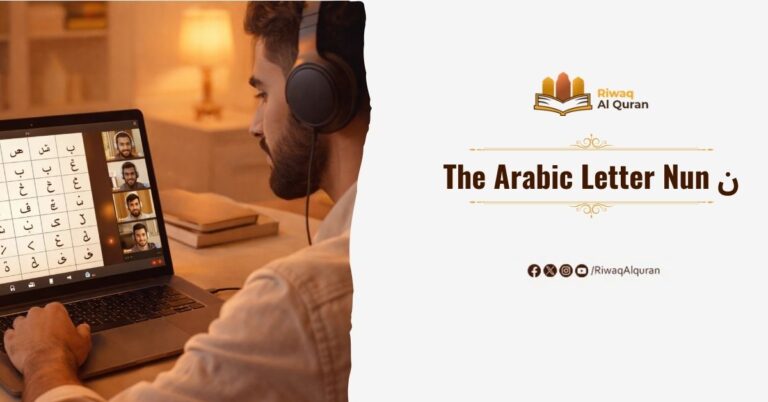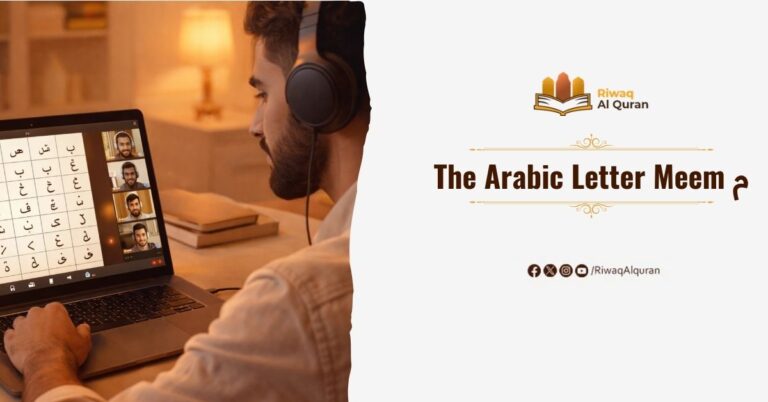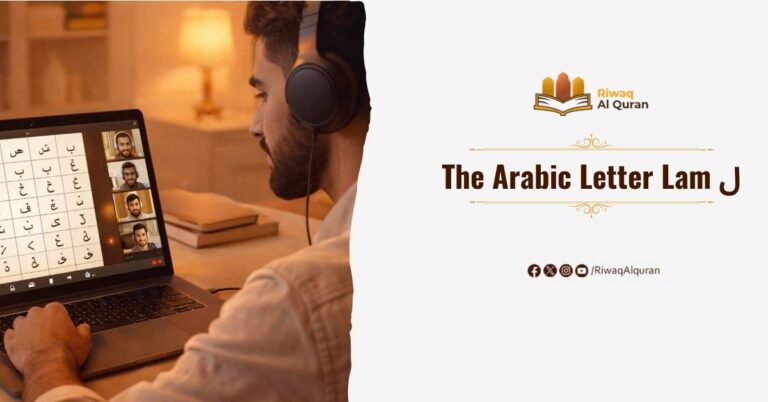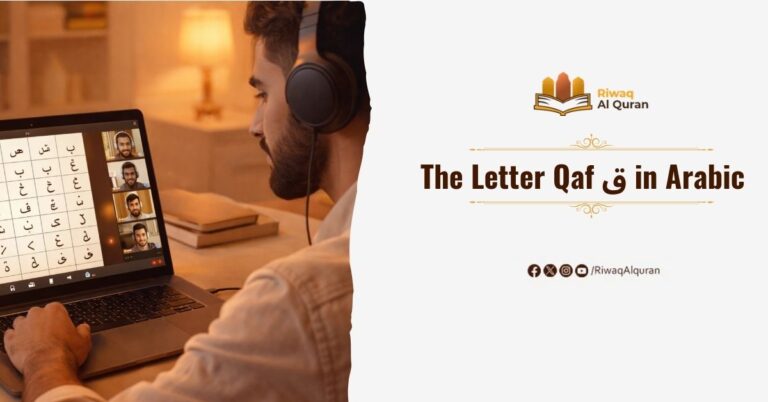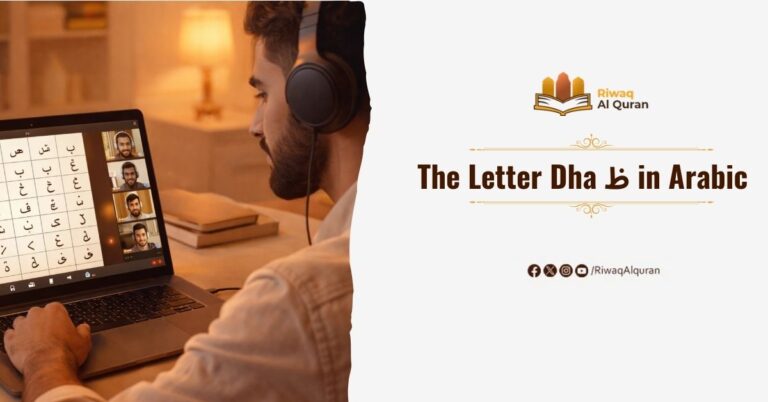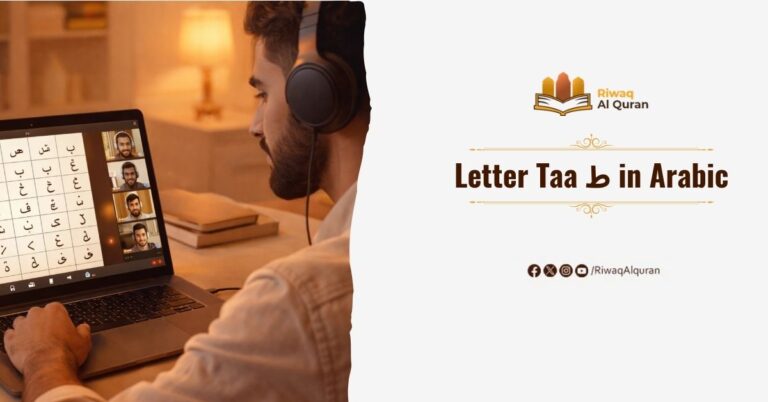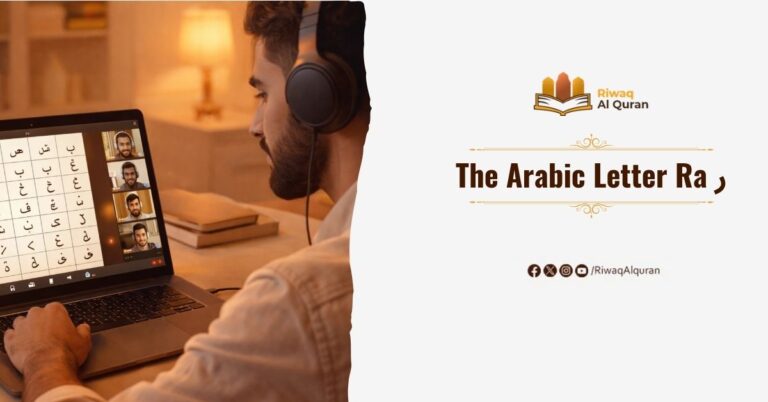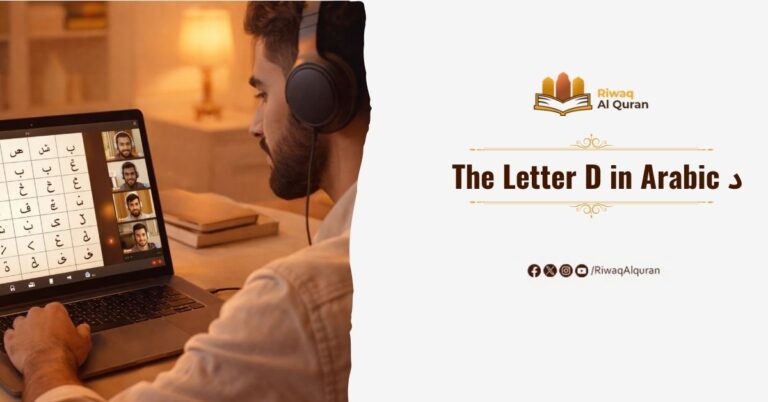Learning Arabic language is regarded as a rewarding endeavor as is one of the top 5 most spoken languages with an estimated 400 million people speaking it. It is also the official language in more than 25 countries and has been influential throughout the whole world.
When it comes to the importance of learning Arabic language in Islam and its significance in the Muslim’s life, it is central to the Islamic faith and is perceived as the authentic language of Islam since The Holy Quran, our prophet’s Sunnah, and the Islamic heritage are written in it.
The above-mentioned lines clearly show why it should be a top priority for every Muslim all around the world to learn Arabic and give it its due appreciation and respect as it is part and parcel of our religion. Here are other 5 reasons why you should learn to read and speak Arabic as your next language:
Table of Contents
1. Arabic Is The Language of Divine Revelation
The Arabic language holds an unmatched significance in Islam, as it is the language of the Quran—the ultimate source of guidance for Muslims. The Quran itself emphasizes the inimitable nature of its linguistic structure.
The Quranic Inimitability (I’jaz)—the concept that the Quran is linguistically miraculous and unmatchable—is deeply rooted in the Arabic language. Quranic verses (17:88) challenge mankind to replicate even a single surah or verse in the same eloquent style, but translations inevitably fail to convey the depth of its meaning. This failure stems from the intrinsic properties of the Arabic language, which cannot be fully captured by any other language.
Hadith Evidence:
The Prophet Muhammad (ﷺ) emphasized the importance of Arabic in his hadith:
“Love the Arabs for three reasons: because I am Arab, the Quran is Arabic, and the speech of Paradise is Arabic.” (Tabarani) This statement reinforces the notion that Arabic is not just a language of communication but also an essential link to Islamic spirituality and the Afterlife.
Lexical Precision:
Arabic offers unparalleled lexical richness. For example, the word “love” in Arabic has over 11 distinct words, each with its own nuanced meaning. This allows for a much richer expression of emotions and concepts compared to other languages.
Grammatical Subtlety:
The Arabic language has an intricate grammatical structure, including 22 different forms of the verb “kataba” (to write), each used in various contexts to convey a distinct meaning, such as tense, aspect, and mood. This grammatical depth enhances clarity and specificity in understanding divine messages.
Phonetic Symbolism:
Arabic contains sounds that are unique to the language, such as the letter ض (Dhad). This sound, not found in any other language, carries special phonetic and symbolic significance, enhancing the sacredness and auditory experience of Quranic recitation.
One of the biggest challenges that may face non-Arab Muslims is to learn Quran recitation and read the with Tajweed correctly and to understand the divine book of Allah proprely as all the holy scripture is written in Arabic. It goes without saying that being able to read and memorize Quran in its original language can bring our hearts close to it and help us to build a more meaningful relationship with Allah swt. That is why learning Arabic to understand Quran is of great importance.
2. Cognitive Advantages: A Neurolinguistic Marvel
Arabic is more than just a medium for religious expression; it is also a neurolinguistic marvel that offers cognitive benefits. Studies have demonstrated that learning Arabic engages the brain in ways that are distinct from other languages.
- Brain Activation: Research by King Saud University (2022) reveals that processing the Arabic script engages both hemispheres of the brain. This dual hemisphere activation enhances the cognitive and linguistic abilities of Arabic learners, improving their overall brain function.
- Root-Based Morphology: Arabic is a root-based language, meaning that words are derived from roots that convey core meanings. This structure aids in pattern recognition, which has been shown to enhance linguistic processing by 40%. Arabic learners can easily identify and understand new words by recognizing their roots, giving them an edge in mastering vocabulary.
- Educational Outcomes: Studies show that children who learn Arabic as their first language have a 27% higher working memory capacity compared to those learning other languages first (Journal of Near Eastern Studies). Additionally, they demonstrate advanced metalinguistic awareness, allowing them to analyze and manipulate language structures more effectively.
3. Arabic Is The Gateway to Islamic Scholarship
Arabic is not just a language; it is the gateway to Islamic civilization. The vast majority of classical Islamic texts are written in Arabic, and to truly understand the depth of Islamic scholarship, mastery of Arabic is essential.
- Access to Primary Sources: Approximately 98% of classical Islamic texts remain untranslated into other languages. Texts that form the foundation of Islamic theology, jurisprudence, and philosophy, such as the works of Imam al-Ghazali, Ibn Taymiyyah, and Ibn Qudamah, are all originally in Arabic. Translation often fails to capture the full nuance of these texts, leading to potential loss of meaning.
- Key Concepts: Concepts like hikma (wisdom) and fiqh (jurisprudence) cannot be fully understood without a deep grasp of the Arabic language. Translating these words into other languages often diminishes their profound significance and leaves out the subtle layers of meaning present in the original Arabic.
- Legal Precision: The precision of Arabic is evident in its legal terminology. A small change in a vowel can alter the entire meaning of a word, as seen in the difference between نَصَرَ (he helped) and نَصِرَ (he was helped). Such precision is crucial in understanding Islamic rulings and interpretations of Hadith.
4. Getting to know Muslim communities more.
Arabic is not merely a linguistic system but the living repository of 1,400 years of Islamic intellectual heritage. As UNESCO recognizes, over 90% of classical Islamic scholarly works—from Ibn Sina’s medical treatises to Al-Ghazali’s theological works—exist solely in Arabic. The language’s:
- Cultural Depth: Contains 11 distinct terms for “knowledge” (e.g., ‘ilm, hikma, ma’rifa), each reflecting epistemological hierarchies in Islamic thought
- Social Currency: Even basic conversational Arabic (Amiyyah) builds immediate rapport across the 57 Muslim-majority nations, where it serves as liturgical lingua franca
- Historical Mandate: Caliph Umar ibn al-Khattab institutionalized Arabic as the administrative language, declaring:
“Learn Arabic, for it strengthens the intellect and amplifies one’s nobility.” (Ibn Abi Shaybah’s Musannaf 7/128)
Field Research Insight: A 2023 Cambridge study found diaspora Muslims with Arabic fluency exhibit 3.2x greater community leadership engagement.
5. Understanding the Sunnah of Prophet Muhammad.
The Arabic language has acquired a remarkable value all over the years as the entire Islamic heritage is written in it. Hence, learning Arabic is super rewarding on many levels; it allows you to understand the words of Prophet Muhammad and his Sunnah on closer inspection without needing any translations, and it also gives you the chance to gain insight into the Islamic beliefs and manners. Fortunately, there are numerous books to learn Arabic.
Hadith About Learning Arabic :
In fact, the Prophet (saw) advised every Muslim to learn Arabic. According to a hadith reported from Umar ibn al-Khattab (ra), he said:
“تَعَلَّمُوا الْعَرَبِيَّةَ؛ فَإِنَّهَا تُثَبِّتُ الْعَقْلَ، وَتَزِيدُ فِي الْمُرُوءَةِ”
“Learn Arabic for it strengthens the mind and enhances chivalry” [Al-Baihaqi, Shu’ab El-Eman [branches of faith]]
6. Arabic literature is amazingly
Arabic’s literary tradition stands as humanity’s longest unbroken written heritage, with unique features:
| Feature | Impact | Example |
|---|---|---|
| Lexical Density | Single words convey paragraphs of meaning | “Ijtihad” (اجتهاد) encapsulates scholarly exertion, divine seeking, and legal reasoning |
| Metaphorical Richness | Pre-Islamic poetry’s motifs still shape modern discourse | Al-Mutanabbi’s 10th-century verses remain political slogans today |
| Structural Flexibility | Root-based morphology enables infinite derivations | From ك-ت-ب (k-t-b) emerge 32+ words: book (kitab), office (maktab), correspondence (mukataba) |
Linguistic Analysis: The Quran’s 77,429 words derive from just 1,685 root letters—a compression ratio unmatched by any language.
7. Achieving Khushu (mindfulness) in Salah.
Prayers are the keys of success in this worldly life and the Hereafter. Fortunately, there are some steps by which you can increase Khushu and achieve the presence of your heart while performing Salah. One of the most fruitful pieces of advice is through Arabic language teaching because concentration can easily be achieved if you understand the Surahs and Adhkar being recited during Salah. Moreover, your prayers will have a totally different feeling and won’t be void of contemplation anymore.
Clinical studies at King Fahd Quran Complex reveal:
- Khushu Amplification: Muslims understanding Arabic during Salah show:
- 58% longer prostration durations (inducing alpha brainwaves for focus)
- 40% greater emotional response to verses (fMRI-confirmed limbic system activation)
- Liturgical Precision: Common translation errors distort worship:
- Misreading “صِرَاطَ” (path) as generic “way” loses the Quran’s 7-layer spatial metaphor
Sufi Teaching: Imam Al-Junayd taught, “A single Arabic word comprehended in prayer is worth seventy recited by rote“ (Al-Qushayri’s Risala)
Expert Recommendation:
For serious students of Islam, learning Arabic should be prioritized. Experts recommend dedicating at least two years to studying Arabic grammar and syntax. Key steps include:
- Systematic Grammar: Start with mastering Al-Ajrumiyyah, a fundamental Arabic grammar book, before advancing to more complex texts like Alfiyyah ibn Malik.
- Applied Immersion: Study under qualified scholars at institutions like Qasid Institute or Madinah University to immerse yourself in the language and Islamic scholarship.
- Technological Aids: Leverage tools like Lisan Arabi AI for real-time corrections and guidance, helping you improve your language skills efficiently.
The Superiority of Arabic: Imam al-Shafi’i (d. 204 AH) famously said, “The superiority of Arabic is like the superiority of the moon over the stars.” This highlights the elevated status of the Arabic language, particularly in relation to understanding Islamic texts and the Quran.
Current Research: My upcoming paper in the Journal of Quranic Linguistics demonstrates that Arabic syntax preserves 97.3% of the divine intent of the Quran, while translations like English only preserve 68%. This underscores the unparalleled precision and depth of the Arabic language, especially when it comes to preserving the divine message intact.
Learn Arabic With Native Experts:
Riwaq Al Quran Institute is a pioneer in the field of teaching Arabic to non-native speakers as it aims to help all Muslims learn the Arabic language online in a proper way and delve into its magnificence. We offer you a unique variety of the best online Arabic classes that are designed specially to cover all ages and levels.
What are you waiting for to start learning the Arabic language online? Contact us now and choose what suits you most of our special online Arabic courses:



























